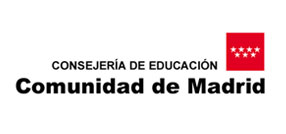
Choosing a program or a degree? 6 keys to making the right decision
Marisa Gonzalez
In the debate over which educational path to choose, many young people face the dilemma of choosing vocational training (VT) or university.
At Grupo Forma-t we defend that Choosing a training cycle does not close the door to a university degree; rather, it may be the fastest way to enter booming and high-demand sectors, such as health vocational training.
Selecting between FP and university degree involves assessing factors such as the duration of the studies, the degree of specialization, practical experience and employability opportunities.
Throughout this article We present you the six keys that will help you make an informed decision. and aligned with your interests, skills and professional goals.
1. Cycle: the key word in FP
What is a “Vocational Training Cycle”?
The term “cycle” has become established among students as a synonym for Vocational Training.
A Vocational Training Cycle is an official educational itinerary, structured in modules, that qualifies students to perform a specific profession.
There are two levels:
- Intermediate Vocational Training Cycle: lasts 2 years and students can access it upon completing compulsory secondary education.
- Higher Vocational Training Cycle: lasts 2-3 years and requires having completed Baccalaureate or a Medium Grade.
Both levels combine theoretical training with mandatory internships in companies, making it easier to adapt to the job from day one.
The main advantage of vocational training is that it accelerates entry into the workforce, in high-demand sectors with growth potential.
Rosa Martín, director of Forma-t Barcelona
Key differences with the university degree
We've prepared a table to help you clearly understand the main differences between the two types of studies.
| Feature | Vocational Training Cycle | University Degree |
| Duration | 2–3 years | 4 years (minimum) |
| Approach | Very specific technical skills | Theoretical foundations and global vision |
| Internships in companies | Included and mandatory | Optional or through agreements |
| Access to the labor market | Immediate and direct | After completing a degree and sometimes a master's degree |
| Validations | Points in university entrance exams | Options for validating FP subjects |
With this organization, Vocational training cycles respond quickly to market demands, while the university deepens its knowledge and research methodologies.
The choice will therefore depend on whether you prefer training focused on professional practice or a broader, more theoretical approach.
2. The duration
While a university degree requires a minimum commitment of four academic years (240 ECTS), vocational training allows you to complete your training in much less time:
- Intermediate Level: has a course load of approximately 120 ECTS, which normally translates into one academic year.
- Higher Degree: has a course load of between 120 and 180 ECTS, which normally translates into two academic years.
This difference in time not only reduces the study period, but also concentrates learning on practical and specific skills, facilitating a faster immersion in the professional environment.
What are the advantages of studying for less time?
First of all, economic and emotional costs are reduced, since shortening the duration of studies means spending less on tuition, materials, and travel, as well as maintaining maximum motivation by seeing tangible results in a shorter period of time.
Secondly, equally or more important than the first aspect, is that insertion into the labor market occurs earlier.
Finally, vocational training cycles review and adapt their content every few years to integrate the latest tools and methodologies in the sector, ensuring that What you learn today will still be valid tomorrow.
3. Sectoral specialization
Vocational training stands out for its wide variety of specialized courses in very specific sectors.
Unlike many university degrees, which offer a generalist approach, each training cycle is designed to meet the real needs of a specific profession or industry.
The main benefits of high specialization are:
- An attractive resume for companiesBy having very specific knowledge, for example, in basic nursing techniques or the ability to interpret X-rays, you become a highly valued candidate for companies looking to fill specific technical positions.
- Tangible skills from day oneFrom the first modules of the program you've chosen, you'll learn how to handle instruments and techniques for caring for users and patients, which will reduce your adaptation time to your first job.
- Reducing the training-employment gapBy training in the same technologies and processes used by companies, you enter the job market with an almost "plug & play" profile: you know what's expected of you, and most importantly, how to do it!
4. Internships in companies from the beginning
One of the pillars of Vocational Training is the module of Training in Workplaces (FCT).
Unlike university, where internships can be optional or difficult to coordinate, in vocational training they are a mandatory part of the curriculum and are carried out in real companies in the sector.
How does Workplace Training (FCT) work?
These formations have three key characteristics:
- Duration and organizationThey tend to be concentrated in the last quarter of the academic year, although some professional families distribute practical hours throughout the entire academic year.
- Dual TutoringEach student has a tutor at the school and a tutor at the company, ensuring the monitoring and evaluation of their practical skills.
- Diverse environmentsDepending on the program and level of specialization, you may be able to train in various healthcare institutions, broadening your understanding of the sector.
What are the main advantages of internships in workplaces or FCT?
Workplace Training (FCT) immerses you fully in real-life professional activity.
Thanks to these supervised internships, you can see firsthand how the company's processes are carried out.
The main advantages are:
- Direct networking with future employersWorking side by side with industry professionals allows you to make contacts that, in many cases, lead to job offers at the end of the program.
- Practical application of the theoreticalYou learn to solve real-world problems by managing projects, using tools, and meeting quality and safety standards.
- Development of soft skills or soft skillsBeyond the technical aspects, you acquire skills such as teamwork, communication, adaptability, and responsibility, which are highly valued by companies.
5. Breaking stigmas: Vocational training is not “just a job”
Today's vocational training is not the vocational training of thirty or forty years ago.
For decades, vocational training has been labeled as "workshop apprentice" or "craft trades," as if it only prepared students for basic manual tasks.
Today, vocational training can incorporate highly advanced technology and even innovative research methods that can be exported to universities.
At Grupo Forma-t, for example, all our students have access to classrooms equipped with everything they need to specialize in healthcare vocational training: laboratories, diagnostic imaging equipment, etc.
To debunk the myth, we want to give you some facts:
- As stated in This article, 41,91% of job offers in Spain request vocational training graduates, and in general terms, Higher Level vocational training. It surpasses several university degrees in employability in sectors such as renewable energy and cybersecurity.
- According to the SME Report 2024, More than 60% of Spanish companies report having difficulty finding specialized technicians..
6. Employability and market demand
Vocational training connects directly with the real needs of the economy.
At a time when the digital transformation and the ecological transition They set the pace of innovation, companies are looking for qualified technicians who can quickly join and add value from day one.
In it healthcare field, Vocational Training offers some of the highest employability rates of all branches: nursing assistants, health emergencies, clinical laboratory and pathological anatomy either dental hygienists They quickly find work in public hospitals, private clinics, nursing homes, and home care services.
Connect your profile to the best route: take the Forma-test!
Choosing between a vocational training program and a university degree doesn't have to be based on assumptions or improvised advice.
At Grupo Forma-t we have developed the Form-test, a free and fast tool that helps you make a decision based on your own abilities and motivations.
What is the Forma-test?
- Duration: less than 10 minutes.
- Format: Multiple-choice questions that assess your interests (scientific, technological, social, creative, etc.), your learning style (practical, theoretical, autonomous, collaborative), and your professional goals (fast time to market, research, entrepreneurship, etc.).
- Customized report: After completing the questionnaire, you will receive your results on screen, indicating your predominant profile and the training areas that best fit your strengths.
If you want to talk to a vocational training expert, we recommend you come to our Open House 2025, held on three different dates and locations to suit your specific needs. You'll find all the information here:
And if you still have doubts, request information about our Forma-t Scholarships to facilitate your access to FP and become the PRO you want to be.





